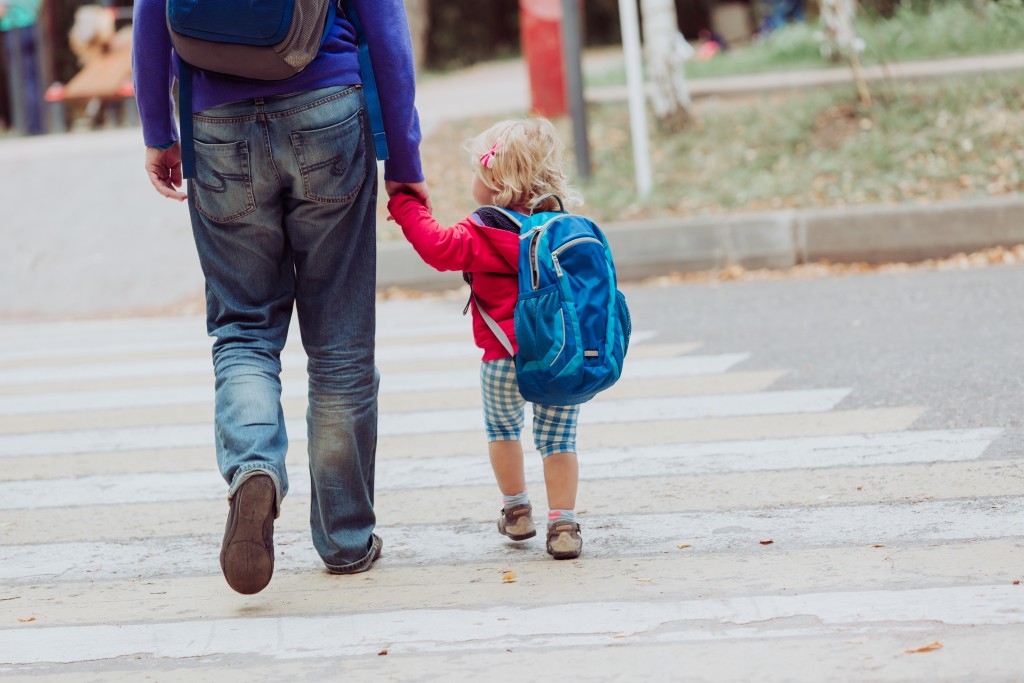One of the major concerns of a parent is if their child is ready for school. It’s a milestone that many parents look forward to but can be scary or frightening for the child. But like many things in life, it’s something that both kids and parents have to go through. The best way to tackle these kinds of things is with faith and trust in each other, and of course, lots of preparation.
School Readiness Begins at Home
If you’ve been a parent for a while, you’ve probably heard of the term ‘school readiness’. It basically refers to the set of skills that your child needs to have to do fine in school. This includes social skills, communication skills, independence, and academic knowledge. All of these things of course begin at your home, as it’s the first school your baby will ever go to. Let’s look at how you can help your child in each of these aspects to better prepare them for the coming school-days.
Communication Skills
Listening and speaking are the basic premise of communication. And to effectively socialize, your child needs to learn how to effectively communicate. They need to learn how to listen and answer basic questions. Fortunately, this is something that you can practice passively, meaning you can teach your child outside of a dedicating teaching session.
1. Talk to Your Child
Get started talking with your child normally. Ask them questions and listen to their answers. Let them exercise their vocabulary by answering simple questions such as “What are you doing?” or “Did you see where my bag is?” Simple WH questions help a lot to practice answering questions.
2. Read and Discuss
Bedtime stories are great. They help children develop their comprehension skills, but also, making a conversation out of comprehension questions is a good way to practice communication. Read a book together and asks questions such as “Why do you think the hero did that?” or “Who was your favorite character.”
Social Skills
Academics isn’t only the reason we send our children to school- we want them to learn how to interact with people as well. However, before they’re able to make friends at school or interact with teachers, we have to guide them through the basics of socialization first.
1. Play Board Games with Them
There’s an abundance of child-oriented board games, and this is a great place to start when teaching your child basic social rules. This helps your child develop their self-control, teaches them how to take turns, and hones their concentration. It helps that they’ll be playing with their family, as there’s a level of familiarity on their part, and a lot of patience on yours.
2. Let Them Play with Other Kids
Children build a social bond as they play together. It helps develop their language skills and hones their memory. Letting your child interact with other children in a daycare center or playground is a valuable opportunity for them to practice being and cooperating with other people.
Independence

Independence is the source of self-esteem and self-reliance. Once they’re outside our home, they need to tie their own shoelaces, fill their own glass, and generally be self-reliant. We need to teach our children to not give up if they fail, and to be happy when they succeed.
1. Let Them Succeed
Constantly needing someone else to do something for you only tolerates dependence and doesn’t teach self-reliance. This begins with little things, like being able to tie their own shoelaces or close their own jackets. Get your children child-friendly clothes and accessories, as this teaches them that they CAN do things on their own.
2. Help Them Be Independent
Let your child develop agency by letting them help with small chores, like cleaning up their toys after they’re done playing or even setting up the table before eating. This helps them feel independent and capable.
Academic Knowledge
It helps to foster a child’s interest in learning before they even set foot in school. This makes the learning experience easier for them, as they’re genuinely interested. And the pre-obtained knowledge also prevents them from feeling confused and frustrated.
1. Practice Writing
Papers and crayons have always been a staple combination in every child’s box. Even in the age of touchscreen and the internet, the trusty paper and crayon combo is still relevant. Teach your child the basic ABCs, and if they can, even writing their name. Having a parent teach them will prepare them for learning from a teacher.
2. Play Puzzle Games
Much like board games, there’s an abundance of puzzle games that involve basic math or simple logic. Take advantage of these resources to teach your child how to count or solve problems. Being familiar with the topics they’ll encounter will make your child’s learning experience smoother and less frustrating.

